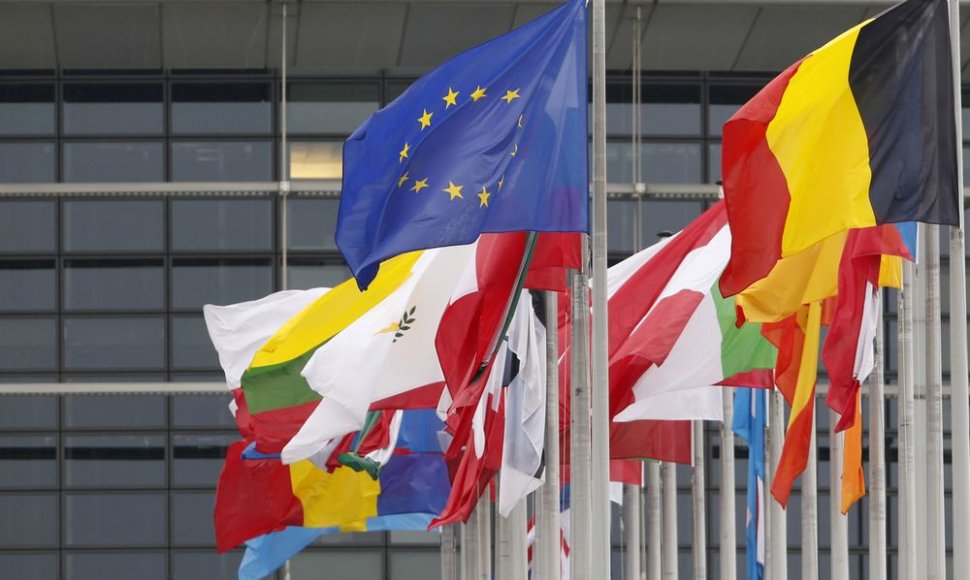Press conferences, sittings, and other meetings held by Brussels institutions can be followed by 23 official EU languages, including English, German, and French as well as more exotic Maltese or Irish.
Currently, around 50 Lithuanian interpreters work at the European Commission and EU Council, mainly doing simultaneous interpretation when an interpreter communicates the speaker's oral message from one language to another working in a special booth. The interpreted message can be heard through earpieces.
Translation and interpretation are two very different techniques, therefore, in some countries they are considered two separate professions.
"The speaker and the interpreter has to immediately interpret, and there's definitely no time for looking up the best word in a dictionary. You have to immediately say, interpret, and that speed is the key difference," Lithuanian language interpreter Salvija Bajorinė says.
Interpreters are also preparing for the upcoming Lithuanian EU Presidency and are holding weekly meetings with experts of the Lithuanian Permanent Representation to discuss legal acts to be actively considered during the next half of the year.
"Our role will be important because we will try to help Lithuania, as the presiding country, to communicate with other member states because others don't speak Lithuanian and very few are learning it. So, if a meeting will be chaired in Lithuanian, we, Lithuanians, will have to do interpreting into English, German, French, and other languages for other booths, other delegations to be able to understand what is being said," Bajorinė said.
While some interpreters are getting into the contents of legal acts, other have the opportunity to practice. There are two or three interpreters working in one booth and they change every half an hour. But even a non-working interpreter has to sit near his or her working colleague and listen to what's being said and help, if necessary, when he or she forgets a term or when the speaker starts quoting numbers.
Once Lithuania takes over the EU Council presidency, Lithuanian interpreters will see a considerable rise in workload as, contrary to the existing situation, they will have to interpret from Lithuanian to foreign languages, so ministers or other officials will be able to choose which language to speak.
"A member state has the opportunity to send to Brussels a person who is the best expert of his/her field. For example, a great environmental expert, or a great lawyer. But, perhaps, he or she might not be good at communicating and might not have been able to learn several foreign languages. So interpreters are here to help him or her to remain a good specialist by focusing on the field," Lithuanian interpreter Mindaugas Krankalis said.
Around 70 Lithuanian translators and their assistants also work at EU institutions. They do translation of EU Commission documents into Lithuanian. They translate, on average, 7 pages a day or around 1,000 pages per year.












